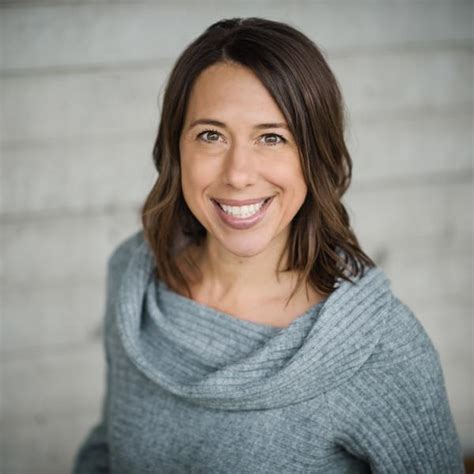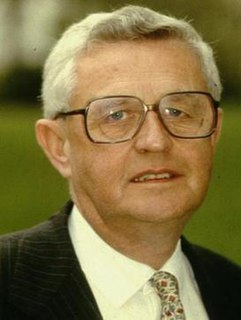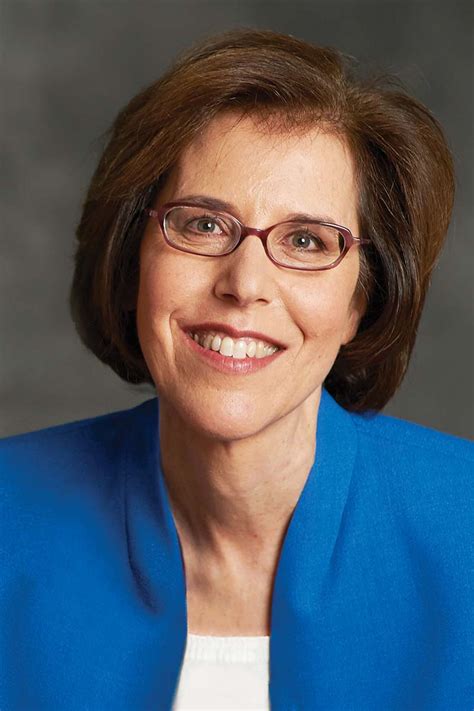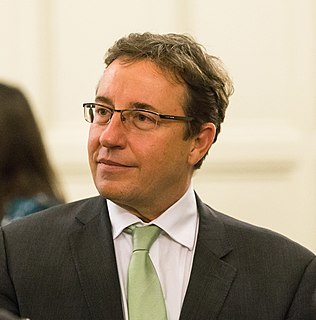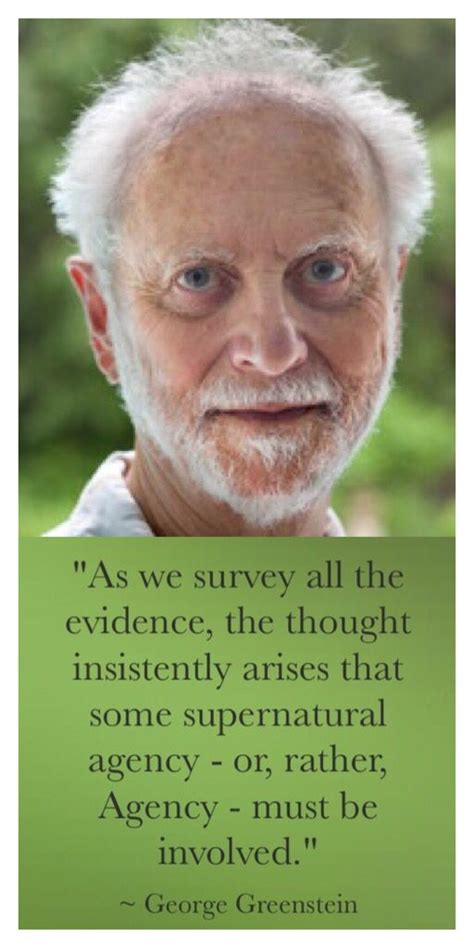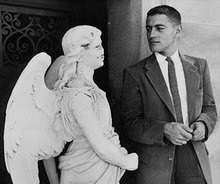Top 1186 Authors Quotes & Sayings - Page 20
Explore popular Authors quotes.
Last updated on April 21, 2025.
I'd worked on a series of Chicken Soup for the Teenage Soul books called The Real Deal for HCI books, which featured essays and poems from teens.Finding the right authors for the series has been no easy feat, mostly because I'm looking for a perfect blend of a teen girl with an interesting story or hook, fantastic writing talent, and the confidence to commit to writing a 30,000+ word book in a matter of months. It's a huge commitment and I recognize that, so the fit has to be there from all these different angles.
Well, first you have to love writing. A lot of authors love having written. But I enjoy the actual writing. Beside that, I think the main reason I can be so prolific is the huge amount of planning I do before I start to write. I do a very complete, chapter-by-chapter outline of every book I write. When I sit down to write, I already know everything that's going to happen in the book. This means I've done all the important thinking, and I can relax and enjoy the writing. I could never write so many books if I didn't outline them first.
I would give them (aspiring writers) the oldest advice in the craft: Read and write. Read a lot. Read new authors and established ones, read people whose work is in the same vein as yours and those whose genre is totally different. You've heard of chain-smokers. Writers, especially beginners, need to be chain-readers. And lastly, write every day. Write about things that get under your skin and keep you up at night.
One of the surest tests of the superiority or inferiority of a poet is the way in which a poet borrows. Immature poets imitate mature poets steal bad poets deface what they take and good poets make it into something better or at least something different. The good poet welds his theft into a whole of feeling which is unique utterly different than that from which it is torn the bad poet throws it into something which has no cohesion. A good poet will usually borrow from authors remote in time or alien in language or diverse in interest.
Mostly, we authors must repeat ourselves - that's the truth. We have two or three great and moving experiences in our lives - experiences so great and moving that it doesn't seem at the time anyone else has been so caught up and so pounded and dazzled and astonished and beaten and broken and rescued and illuminated and rewarded and humbled in just that way ever before. Then we learn our trade, well or less well, and we tell our two or three stories - each time in a new disguise - maybe ten times, maybe a hundred, as long as people will listen.
I guess what inspires me most is the desire to draw out feelings that feel best expressed on the written page by really good authors, and I'm not a really good author. I feel like my job as a filmmaker is to eff the ineffable, to take feelings that only poets could describe with words and try to project them on the screen for viewers to feel. I don't think I've succeeded once but in the act of trying I've come up with all these other results which sometimes intrigue me.
The Bible became the book of books, but it is not one document. It is a mystical library of interwoven texts by unknown authors who wrote and edited at different times with widely divergent aims. This sacred work of so many epochs and so many hands contains some facts of provable history, some stories of unprovable myth, some poetry of soaring beauty, and many passages of unintelligible, perhaps coded, perhaps simply mistranslated, mystery. Most of it is written not to recount events but to promote a higher truth—the relationship of one people and their God.
I'm a reader. I like - I'm a great reader. I keep going back, though, to certain authors, just like I love film, but I keep going back to just five or six certain filmmakers. In literature I like Chekhov, for example; I think he's my favorite. And Flaubert - you know, that kind of concision. But I also like Tolstoy; I love those romances that, you know, weigh 500 pounds and take months and months and months to read.
What the Latins have done in this text (1 John v, 7) the Greeks have done to Paul (1 Tim. iii, 16). They now read, "Great is the mystery of godliness; God manifest in the flesh"; whereas all the churches for the first four or five hundred years, and the authors of all the ancient versions, Jerome as well as the rest, read, "Great is the mystery of godliness, which was manifest in the flesh." Our English version makes it yet a little stronger. It reads, "Great is the mystery of godliness: God was manifest in the flesh."
I do not consciously reclaim. I am not those "some readers" and so I think it would be impossible for me to see my work that way, as reclaiming a preserve. I write in a way that is aimed at all levels - conscious and unconscious - at pleasing the kind of reader I am. Some of the authors I read are male, some are female, and some are even in between. And speaking of in between, maybe now is as good a moment as any to point out that there might be no "feminine" or "masculine" literary sensibility, or sensibility generally.
If this nation is to be wise as well as strong, if we are to achieve our destiny, then we need more new ideas for more wise men reading more good books in more public libraries. These libraries should be open to all — except the censor. We must know all the facts and hear all the alternatives and listen to all the criticisms. Let us welcome controversial books and controversial authors. For the Bill of Rights is the guardian of our security as well as our liberty.
I have dear friends in South Carolina, folks who made my life there wonderful and meaningful. Two of my children were born there. South Carolina's governor awarded me the highest award for the arts in the state. I was inducted into the South Carolina Academy of Authors. I have lived and worked among the folks in Sumter, South Carolina, for so many years. South Carolina has been home, and to be honest, it was easier for me to define myself as a South Carolinian than even as an American.
Taking ideas seriously does not fit with the rhetorical style of textbooks, which presents events so as to make them seem foreordained along a line of constant progress. Including ideas would make history contingent: things could go either way, and have on occasion. The 'right' people, armed with the 'right' ideas, have not always won. When they didn't, the authors would be in the embarrassing position of having to disapprove of an outcome in the past. Including ideas would introduce uncertainty. This is not textbook style.
I do that a lot of authors still do not do is allow people to write directly to me. I get about 50 fan letters a day, and I answer every single one of them myself. It takes a lot of time and sometimes it's a pain in the neck and I answer the same questions over and over. But the truth is these people come to my readings clutching these letters saying, "You wrote me back. I can't believe you wrote me back", and I think it really means a lot for them to know that the author values them just as much as they value the author.
It's actually as simple as this. New authors, building their customer base, need physical bookshops. Physical bookshops are lovely tactile, friendly, expert, welcoming places. Physical books, which can only be seen and handled in physical bookshops, are lovely, tactile things. Destroy those bookshops, and the very commercial and cultural base to the book industry is destroyed. Once and for all. Like Humpty Dumpty, it can never be put together again.
The most obvious – and easiest! – way to gain perspective is to put your work away for a while.
The truth is, we don’t know how taking a break frees up the mind, but it does: Somehow it freshens our little neurons, or perhaps it prompts the brain to create more cleverness molecules.
If you can bear to let a short piece sit a week and a book-length work a month, do so. Longer is fine, too; some authors have abandoned manuscripts for years before unearthing them and realizing, ‘Hey, this isn’t bad,’ and renewing their energy for the project.
A lot of attention has been paid in Latin America to the new generation of nonfiction writers, authors like Julio Villanueva Chang, Diego Osorno, Cristóbal Peña, Gabriela Wiener, Leila Guerriero, Cristian Alarcón, among others. These are writers doing important, groundbreaking work. So the talent is there, as is the habit of radio listenership, and what we propose to do is unite the two. We want to have these immensely gifted journalists - men and women who've already revitalized the long-form narrative - we want them to tell their stories in sound.
Ann Coulter is, at this point, a known quantity (especially after the raghead remarks last year), and she delivered what they knew she would deliver. Where were the complaints in advance of her appearance? There were none that I am aware of, and this is just damage control. An open letter isn't going to solve the real problem with the conservative movement. And hell, the authors can't even write this letter without sniping at liberal websites. Ann Coulter is not the problem - she is a symptom of the problem.
By the consultation of books, whether of dead or living authors, many temptations to petulance and opposition, which occur in oral conferences, are avoided. An author cannot obtrude his service unasked, nor can be often suspected of any malignant intention to insult his readers with his knowledge or his wit. Yet so prevalent is the habit of comparing ourselves with others, while they remain within the reach of our passions, that books are seldom read with complete impartiality, but by those from whom the writer is placed at such a distance that his life or death is indifferent.
Treatment Plans and Interventions for Depression and Anxiety Disorders provides clinicians with essential guidelines to treat patients in the era of managed care. Seven psychiatric disorders are described and conceptualized in cognitive-behavioral terms. The authors then provided an unusually clear, reader-friendly description of how to assess and treat each disorder with illustrative case examples, and patient forms and handouts. It should prove very useful for clinicians or clinicians-in-training who want to learn how to conduct short-term treatment through an empirically validated approach.
I come from a nation where fantastic fiction has a very low status, unless it fits into some very specific categories or is written by already established authors. I don't by any means try to hide what I write, but the way people think in categories here is pretty extreme: it blots out discussing the actual work on its own terms. That's made me loath to talk about my own work in terms of genre, because once you get a label, it sticks and poof go a slew of potential readers and reviewers because eww, fantasy cooties.
[I have] my own view about [Bob] Dylan's Nobel prize. Which is, I'm firmly in the Nay camp. I do think the award is a category error, but that's not why. Not in itself. What bothers me is the perceived status of the categories. If pop lyricists were routinely considered for the prize as are authors and poets, I'd still think it mistaken, but I wouldn't much care. But I am quite certain that Joni Mitchell and Leonard Cohen, for example, both at the very least Dylan's equals as writers, have never been in the running and never will be.
With Climate Change as a Security Risk, WBGU has compiled a flagship report on an issue that quite rightly is rising rapidly up the international political agenda. The authors pull no punches on the likelihood of increasing tensions and conflicts in a climatically constrained world and spotlight places where possible conflicts may flare up in the 21st century unless climate change is checked. The report makes it clear that climate policy is preventative security policy.
The main reason I decided to study Latin American literature was because I'd gotten somewhat bored by the American fiction I was reading. I am not drawn to a specific style or aesthetic. When I think about literature, I think about it in the three languages I read easily - English, Spanish, and Portuguese. The authors I prefer are all very different and are not limited to certain genres or even certain time periods. Reading across three languages is a way for me to diversify my intake as a reader, not to tunnel into certain categories or demographics.
I am opposed to writing about the private lives of living authors and psychoanalyzing them while they are alive. Criticism is getting all mixed up with a combination of the Junior FBI-men, discards from Freud and Jung and a sort of Columnist peep-hole and missing laundry list school. ... Every young English professor sees gold in them dirty sheets now. Imagine what they can do with the soiled sheets of four legal beds by the same writer and you can see why their tongues are slavering.
"Spirituality" in business sounds lofty. How practical is it? The answer is "very." There's a fundamental way in which Spirit and consciousness contribute to worldly success-and it has long been ignored. [. . .] As experts, authors and gurus often note, the game of business is to influence the external world. But here's the point: How can you control your environment if you can't even manage your own thoughts and emotions? In other words, how do you rule the world without first mastering yourself? The cornerstone of effective leadership is self-mastery.
Whether I like it or not, most of my images of what various historical periods feel, smell, or sound like were acquired well before I set foot in any history class. They came from Margaret Mitchell, from Anya Seton, from M.M. Kaye, and a host of other authors, in their crackly plastic library bindings. Whether historians acknowledge it or not, scholarly history’s illegitimate cousin, the historical novel, plays a profound role in shaping widely held conceptions of historical realities.
So long as the mental and moral instruction of man is left solely in the hands of hired servants of the public--let them be teachers of religion, professors of colleges, authors of books, or editors of journals or periodical publications, dependent upon their literary incomes for their daily bread, so long shall we hear but half the truth; and well if we hear so much. Our teachers, political, scientific, moral, or religious; our writers, grave or gay, are compelled to administer to our prejudices and to perpetuate our ignorance.
What I want to argue for is not that we should give up on our ideas of success, but that we should make sure that they are our own. We should focus in on our ideas and make sure that we own them, that we're truly the authors of our own ambitions. Because it's bad enough not getting what you want, but it's even worse to have an idea of what it is you want and find out at the end of the journey that it isn't, in fact, what you wanted all along.
There rise authors now and then, who seem proof against the mutability of language, because they have rooted themselves in the unchanging principles of human nature. They are like gigantic trees that we sometimes see on the banks of a stream; which, by their vast and deep roots, penetrating through the mere surface, and laying hold on the very foundations of the earth, preserve the soil around them from being swept away by the ever-flowing current, and hold up many a neighboring plant, and perhaps worthless weed, to perpetuity.
Preserve the core, and let the rest flux. In their wonderful bestseller Built to Last, authors James Collins and Jerry Porras make a convincing argument that long-lived companies are able to thrive 50 years or more by retaining a very small heart of unchanging values, and then stimulating progress in everything else. At times "everything" includes changing the business the company operates in, migrating, say, from mining to insurance. Outside the core of values, nothing should be exempt from flux. Nothing.
There are some works which the authors must consign unpublished to posterity, however uncertain be the event, however hopeless be the trust. He that writes the history of his own times, if he adhere steadily to truth, will write that which his own times will not easily endure. He must be content to reposite his book till all private passions shall cease, and love and hatred give way to curiosity.
The biblical authors wrote of God's sovereignty over His world, and of man's experiences within that world, using such modes of speech about the natural order and human experience as were current in their days, and in a language that was common to themselves and their contemporaries. This is saying no more than that they wrote to be understood. Their picture of the world and things in it is not put forward as normative for later science, andy more than their use of Hebrew and Greek is put forward as a perfect model for composition in these languages.
Book burning is a charming old custom, hallowed by antiquity. It has been practiced for centuries by fascists, communists, atheists, school children, rival authors, and tired librarians. Like everything of importance since the invention of the cloak and the shroud, its origins are cloaked in mystery and shrouded in secrecy. Some scholars believe that the first instance of book burning occurred in the Middle Ages, when a monk was trying to illuminate a manuscript. All agree that book burning was almost non-existent during the period when books were made of stone.
This book is unique. I know of no other which so artfully tackles two of the greatest mysteries of modern science, quantum mechanics, and consciousness. It has long been suspected that these mysteries are somehow related: the authors’ treatment of this thorny and controversial issue is honest, wide-ranging, and immensely readable. The book contains some of the clearest expositions I have ever seen of the strange and paradoxical nature of the quantum world. Quantum Enigma is a pleasure to read, and I am sure it is destined to become a classic.
The best reason to be assigned, in this case, for not having made the Constitution more free from a charge of uncertainty in its meaning, is believed to be, that it was not suspected that any such charge would ever take place; and it appears that no such charge did take place, during the early period of the Constitution, when the meaning of its authors could be best ascertained, nor until many of the contemporary lights had in the lapse of time been extinguished. How often does it happen, that a notoriety of intention diminishes the caution against its being misunderstood or doubted!
Exploring Ecclesiology is true to its subtitle, being both vibrantly evangelical and admirably ecumenical; it is commendable for its depth, breadth, and erudition. Harper and Metzger's sympathetic engagement with Catholic ecclesiology is challenging and reciprocal. I especially appreciate how the authors emphasize and explore the vital connection between ecclesiology and eschatology, something very beneficial to readers seeking to better appreciate how living the Faith in community today relates to the hope of entering fully into Trinitarian communion in the life to come.
Maybe just as many women writers as male writers could be billed as the next great American writer by their publisher. Maybe book criticism sections could review an equal amount of female and male writers. Maybe Oprah could start putting some books by women authors in her book club, since most of her audience is women.
The Greeks used to use the same stories, the same mythology, time after time, different authors. There was no premium placed upon an original story, and indeed, Shakespeare likewise. A lot of people wrote plays about great kings. They didn't expect a brand-new story. It was what that new author made of the old story. It is probably the same now. We disguise it by inventing what seem to be new stories, but they're basically the same story anyway.
Unlike the authors of such warrior classics as The Art of War and The Book of the Five Rings, which accept the inevitability of war and emphasize cunning strategy as a means to victory, Morihei understood that continued fighting-with others, with ourselves, and with the environment-will ruin the earth. “The world will continue to change dramatically, but fighting and war can destroy us utterly. What we need now are techniques of harmony, not those of contention. The Art of Peace is required, not the Art of War.
Some authors write nonsense in a clear style, and others sense in an obscure one; some can reason without being able to persuade, others can persuade without being able to reason; some dive so deep that they descend into darkness, and others soar so high that they give us no light; and some, in a vain attempt to be cutting and dry, give us only that which is cut and dried. We should labor, therefore, to treat with ease of things that are difficult; with familiarity, of things that are novel; and with perspicuity, of things that are profound.
If anyone ever wonders why there's nothing coming from me, it's not my fault. I'm doing the work. No, I haven't deteriorated or gone insane. Suddenly, I just can't get anything into print. And apparently I'm not alone in this. There are people of very high standing, authors who are having problems. So I have been told. In my own case, the more disturbing element is the editor-in-chief who said to me, "I think this book is terrific. It ought to be in print. I can't publish it -- I've been told I mustn't." The indication is that I'm not writing what people want to read, but I never did.
Despite wanting to work in publishing, I was a publisher's worst nightmare: I rarely bought new books. So my goal was to publish the kind of books I would buy, and read. My reading habits have changed since starting the press. The only other "goal", per say, is to continue to experiment. I don't want the press to ever fall into a formula, or to be pigeonholed - "They do great reissues of modernist poets!" - I want to keep pushing, exploring the kind of title we can get away with. And working with authors who challenge the way I think about writing, editing and reading.
I wish to put together an imaginary nation. It is my belief that no other nation is possible, or rather, I believe that authors who count take responsibility for a map which is addressed to travellers of the earth, the world, and the spirit. Each issue is composed as a map of this land and this glory, images of our cities and of our politics must join our poetry. I want a nation in which discourse is active and scholarship is understood as it should be, the mode of our understanding and the ground of our derivations.
-Robin Blaser (June 3, 1967)
Learning the craft as an actor in Los Angeles is a very hard thing to do, in my opinion. We all come from a certain world and when you start learning the craft, you need material to read/study that you can relate to. We do not have too many Latino writers on the West Coast that I was able to relate to (or at least, I didn't know at the time). I came from the streets, so the most published authors had no relation to my world. As soon as I picked up Pinero & Guirgis, it was all over. It was my world, just in a different location. They cracked me open inside and out.
Authors and publishers want fair compensation and a means of protecting content through digital rights management. Vendors and technology companies want new markets for e-book reading devices and other hardware. End-users most of all want a wide range and generous amount of high-quality content for free or at reasonable costs. Like end-users, libraries want quality, quantity, economy, and variety as well as flexible business models.
